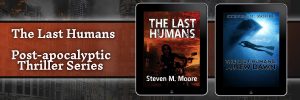Review of Harari’s Sapiens…
After all the hype about Sapiens, much of it probably generated by questionable publicists and even more questionable critics, I looked forward to reading it but found it disappointing. The author has a rather myopic and distorted view of Homo sapiens, the human condition, and human history. There’s also a certain smugness in the many pages of this book that can grate on you and wear you down. But let’s start with the beginning, as the Queen of Hearts told Alice.
The author throws out questionable theories, little more than guesses, about how some different branches of hominins became extinct and modern man came to dominate, he incorrectly thinks that cultural norms are just figments of our imaginations, and proposes that anything beyond hunter-gather existence has had a negative influence on Earth’s biosphere and human beings’ existence within it. In the early parts of the book, he pretends to be an expert on archaeology, anthropology, and psychology. And there’s far too much opinion and too little science. And that’s just the beginning.
There are many questionable statements made in the book—a whole list of non sequitors, in fact. The proposed equivalence between ideology and religion is but one example that will grate on most readers. Both are collections of ideas, to be sure, and both might have names ending with ism, but he neglects the moral component of most religions, even the non-theistic ones. There’s no morality in capitalism or socialism, for example; they’re amoral, although some people might worship one or the other. Does worshipping make the two, or communism or Nazism, for that matter, into a religion? Maybe this is just semantical hand-waving on my part as well as his, but the author shouldn’t indulge in it for shock value as he seems wont to do.
A more concrete and scientific example is found in the claim that quantum mechanics is like actuarial statistics, i.e. classical probability. Far from it! Moreover, he believes probability isn’t important in physics outside of quantum mechanics, a complete non sequitur. The Second Law of Thermodynamics is a statistical law, whether it deals with quantum mechanical or classical mechanical systems. Indeed, all of thermodynamics, classical or otherwise, comes from statistical mechanics, where probability theory is used to deal with physical systems with so many components that one cannot follow them individually.
The author does make a few valid points. Our forefathers’ “all men are created equal…” certainly fails to separate government and religion (which is why we have a constitution), but he fails to mention that this claim of equality is seen more today as a call for giving all people equal opportunity to rise where their innate and learned skills will take them, and make a decent living while doing it. In any case, America’s revered documents are certainly not an “imagined” social glue—they establish the right to rebel against and/or control and censure oppressive rulers peacefully, if we can!
His prose only seems to be a medium for the author to contradict all preconceived notions one might have about human beings’ existence on this planet. That’s one positive, I suppose: It certainly got me thinking, but my thoughts all became focused on asking myself. how can a historian in the twenty-first century get things so wrong? I suspect that the bottom line is that he’s only proven that history is not a science—it reduces to collections of opinions published by historians, often with little data to back them up. We’ve all heard that the victor rewrites history. In this case, the author is no victor, but he still sets out to rewrite all of human history. Questioning that history might be okay; an anarchistic destruction, though, without offering a rebuild can be disconcerting.
As a final comment, there’s not too much history here, in fact, just a chaotic selection of cherry-picked events to analyze and throw into a questionable stew made from week-old leftovers, hardly a profound and fresh meal of insights. The book’s subtitle is completely incorrect as a consequence. Perhaps the author is trying to be humorous at times in his reflections about human history, but it doesn’t work. I sure won’t be reading any more of his books, and I can’t recommend this one, even if it were more reasonably priced. (I received a copy as a gift.) Caveat emptor.
***
Comments are always welcome.

The Last Humans: A New Dawn. The post-apocalyptic adventures of Penny Castro continue. Her new and idyllic life on her SoCal citrus ranch is turned upside down when what remains of the US government kidnaps her kids to force her and her husband to participate in a revenge invasion of the country responsible for the apocalypse. In this sequel to The Last Humans, a thrilling roller coaster ride into a possible future awaits the reader. Available wherever quality ebooks are sold. (Note that Black Opal Books, the publisher of the first book, has taken it down from Amazon, so I give the link to Smashwords. The reader can hopefully still purchase the ebook and print versions from the publisher. The sequel is published by DraftDigital, so it’s available at Amazon and other retailers, but not at Smashwords.)
Around the world and to the stars! In libris libertas!
